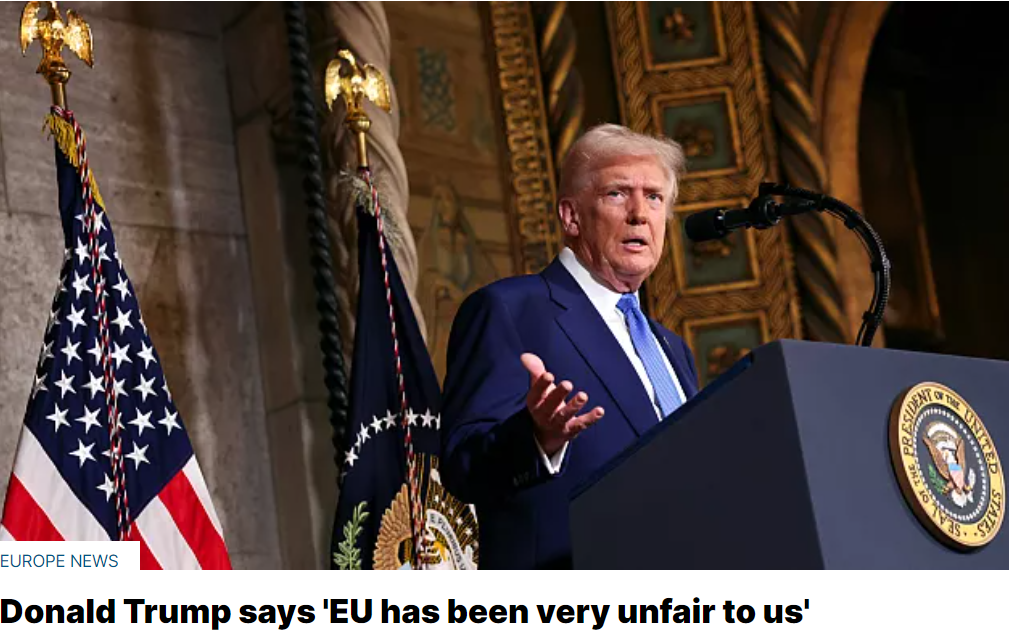The bloc's top trade officials have said they are interested in opening talks with the White House with a view to striking mutually beneficial trade deals. US President Donald Trump has complained that "The EU is very unfair to us"when it announced new 25% tariffs on imports of cars, pharmaceuticals and chips.
The US President has long opposed what he calls unfair treatment of US car exports in foreign markets.
For example, the European Union levies a 10% tariff on car imports, which is four times more than the 2.5% tariff on cars in the US.
"We have a deficit of $350 billion (€335 billion). They are not taking our cars, they are not taking our agricultural products, they are taking almost nothing. They take very little. And we will have to straighten that out. And we will do it, I have no doubt," Trump told reporters at his Mar-A-Lago resort.
Business negotiations
Meanwhile, top leaders of the trade bloc have said they are interested in opening talks with the Trump administration to strike mutually beneficial trade deals.
Executive Vice-President of the European Commission for the Green Deal Maroš Šefčovič said he hoped to avoid further tariffs and European retaliation by negotiating with the White House on the possibility of reducing or eliminating tariffs on motor vehicles and some other goods.
"I will bring this to the attention of my American counterparts when I meet with them later today. The EU is interested in making agreements - agreements that promote fairness, burden sharing and mutual benefits," He said.
Trump has upset the rules that have governed world trade for decades.
On 13 February, he announced sweeping reciprocal tariffs in an effort to address persistent US trade deficits. Not since 1975 has the US sold more to the rest of the world than it bought.
Trump argues that the playing field is tilted against US companies because other countries typically tax US exports at a higher rate than America taxes its own.
In an attempt to address this imbalance, Trump announced that he was raising US tariffs to match the rates charged by other countries.
Three weeks into his second term, he has already imposed 10% tariffs on China and raised US taxes on foreign steel and aluminum.
He also announced and then suspended 25% duties on goods from Canada and Mexico.
However, many economists do not share Trump's enthusiasm for tariffs, arguing that additional taxation on importers is usually passed on to consumers.
euronews/ gnews.cz - RoZ



